Music & Concerts
Raunchy queer rapper Big Dipper readies Pride headlining set
Body-positive performer discovered career making campy, funny viral videos
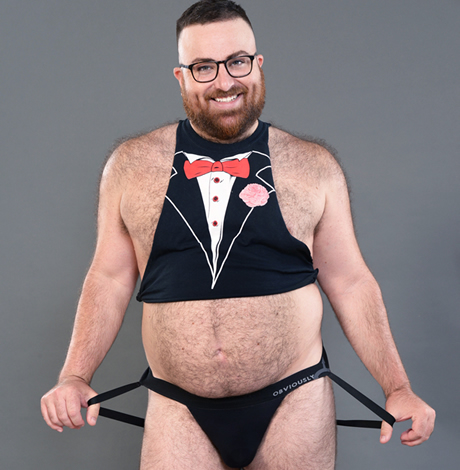
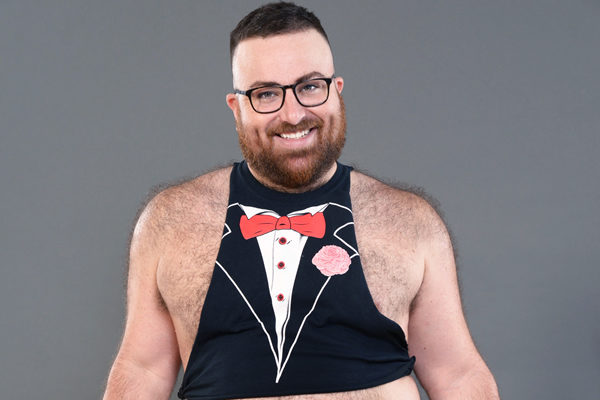
One of the headliners at this year’s Capital Pride Concert will be rapper Big Dipper, best known for his frank sexuality and tongue-in-cheek humor, such as in the video for the song “Lookin,” which features a group of nearly naked men getting wet at a soapy car wash — only the men in question are not the typical body types you would expect.
“They are all big, fat dudes dancing in skimpy shorts,” says the rapper, who identifies as a bear.
It wasn’t until he was 26 that Dan Stermer adopted the moniker Big Dipper and released his first song “Drip Drop,” a raunchy parody of Disney-esque tunes about cruising for sex. He quickly developed a cult following and started performing at clubs. Big Dipper is slated to perform around 5 p.m. on the Capital Concert Stage. (Meet-and-greet tickets for Big Dipper are $25 and were available as of Blade press time.)
WASHINGTON BLADE: What can those coming out to the concert expect from you?
BIG DIPPER: I just found out that someone who is performing after me has a very large tween fan base, so I need to be a little more buttoned-up and make it more age-appropriate than I normally do.
BLADE: How is that going to change what you planned? Your fans might be expecting raunchiness.
DIPPER: I love Pride events and I love the fact that we get to support people of all ages, even from a young age, but more often than not I am a nightclub act, so when I go out in the day, I’m sort of like a vampire and I need to think about what I can do that’s appropriate for everyone. I may just have to hold the mic away from my face on certain words. Sometimes I yell out to the crowd that it’s time for the little ones to put their earmuffs on because we’re going to talk about “this thing” but I’ll have to see what happens.
BLADE: So, preview what’s in store.
DIPPER: My show will be provocative, high-energy, sex-positive, body-positive and a celebration of queer identity, all set to the backdrop of beat-club music and a bunch of me yelling into a microphone.
BLADE: What made you decide to get into the music industry?
DIPPER: I started on a whim. I made up one song with a friend of mine as a joke and the response was so positive that it just snowballed. That was seven years ago and I’ve been at it ever since trying to stake my claim in one little corner of the music industry.
BLADE: Your videos are hilarious. Was it a conscious decision to draw people into your music by way of these outlandish videos?
DIPPER: I definitely had ideas I thought would go viral, but the videos were never intended just for that purpose. If it didn’t serve the song, I left the idea alone. They are not just about getting people to pay attention but are always about making the best video for the song. I think a lot of independent artists who don’t have representation with a label and on top of that are queer — and essentially a different kind of queer that the mainstream media doesn’t think they can make money off of — and I believe I fall in all of those categories, but often those kind of artists don’t have the money or resources to make videos. I’m lucky in that I have so many creative friends around to rally to make these videos with me. They are all a labor of love. It’s just about making art I want to put out in the world.
BLADE: How have these videos helped your career?
DIPPER: Well, because I’m able to make videos that catch people’s eye, it’s allowed me to create a fan base and play big shows, like Capital Pride.
BLADE: You opt not to just have the “pretty” people in your videos, but you mix it up with different body types. Why was that important to you?
DIPPER: Yes, because of statements like you just said — the so-called good-looking people. I never saw sort of big bodies represented in any sort of media or sexualized in any sort of media, and for me, it’s really important. The most I can do is be a representative for people who look like me. The more of us who represent our identity, the more people who will feel seen and heard. I don’t think there are a lot of chubby, hairy dudes dancing around and making music videos, so the fact I get to do that and have people feel seen, feels important.
BLADE: Did you ever think when you were starting out that you would play a big event like Capital Pride and perfrom in front of so many people?
DIPPER: I never set out to be a performer, so no. This has all been haphazard and I’ve been letting it grow over time. I feel really lucky. When I play these big events, it’s kind of shocking. These ideas from my brain that I wrote down on paper and yelled into a microphone, now I’m getting the chance to share them in front of all these people and they are cheering me on. That’s a wild thing.
BLADE: Do you set goals for yourself? Where would you like to be in five years?
DIPPER: I would love to make money doing this. This is my full-time job but I am an impoverished artist. It would be nice to feel like I could survive. I would also like to elevate what I do to a larger audience and play on straight bills and not have it be a token thing or have to censor myself.
Music & Concerts
Washington chorale kicks off Christmas with vibrant program
‘Thine Own Sweet Light’ concerts planned
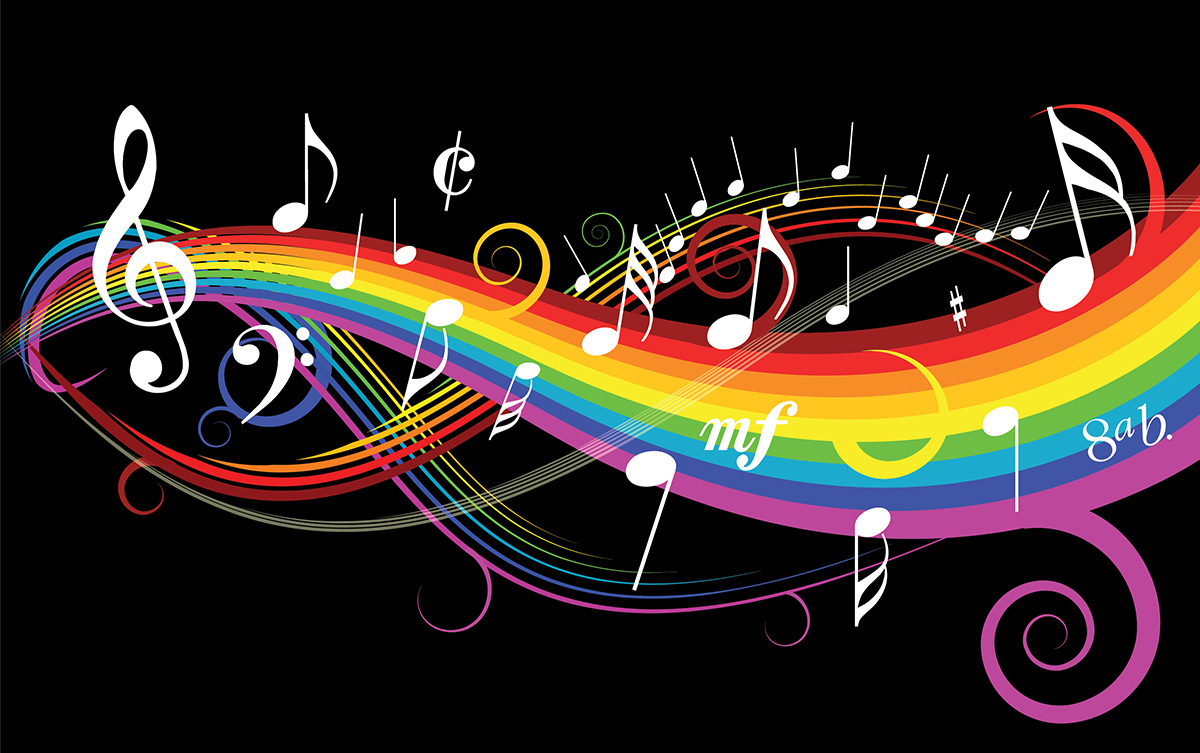
The full Washington Master Chorale will return for its annual holiday concert tradition with “Thine Own Sweet Light” on Friday, Dec. 19 and Sunday, Dec. 21 at St. Ann’s Catholic Church (D.C.) and Church of the Epiphany (D.C.).
The concert will feature the rich sounds of the 50-voice, a cappella chorus performing lush, seasonal choral music inspired by the theme of light. Highlights include Edvard Grieg’s “Ave Maris Stella,” Eric Whitacre’s “Lux Aurumque,” and Christopher Hoh’s “Holy, Holy, Holy is the Lord God of Hosts.” The program will also present a new work by Barcelona composer Josep Ollé i Sabaté, along with charming holiday folk songs and seasonal favorites.
For more details, visit the Washington Master Chorale website.
Music & Concerts
Queer mega stars (and allies) ready to take D.C. stages this fall
Watch LGBTQ icons light up stages across the DMV as they sing, dance, and drag their way through spectacular shows.
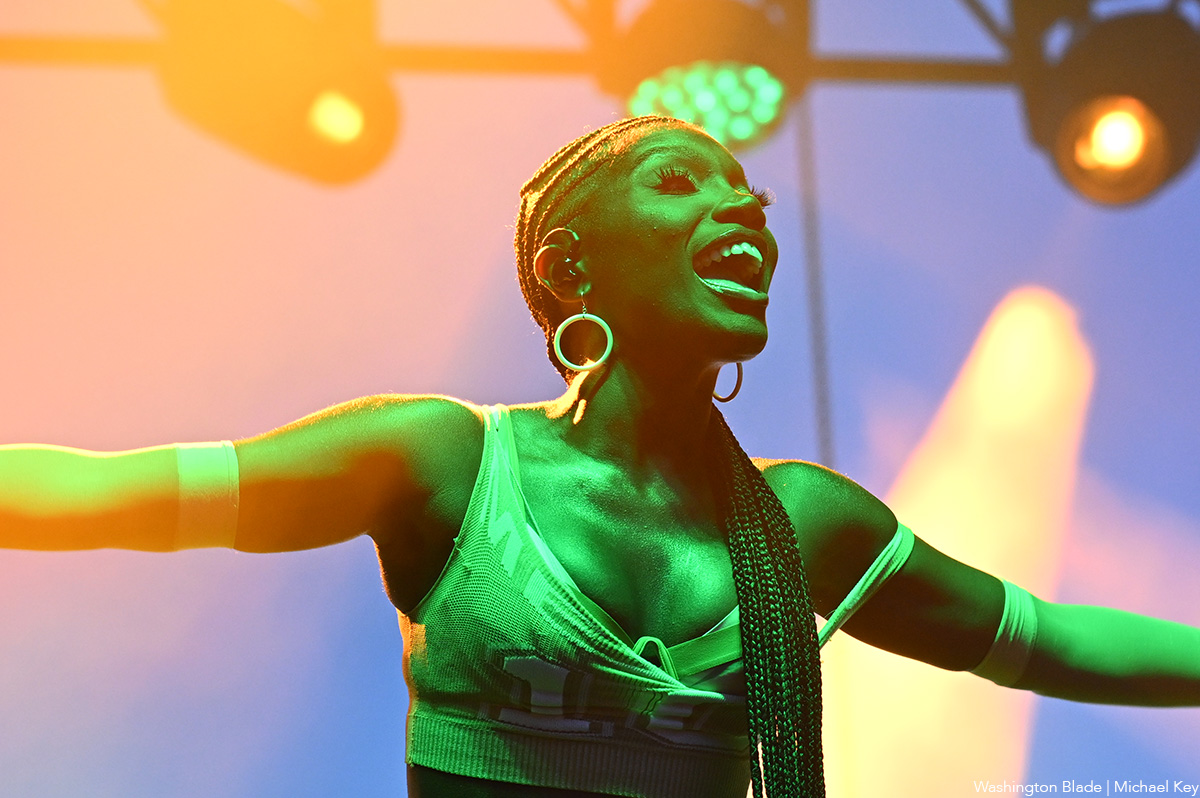
One of the best ways to welcome fall is by catching LGBTQ performers (and their allies) lighting up some of the D.C. area’s biggest stages. From country and pop to drag and rock, the season is packed with shows you won’t want to miss.
Maren Morris – The country, rock, and pop diva—known for hits like “The Bones” and for standing up against Nashville’s anti-LGBTQ voices—takes the stage at Wolf Trap (1551 Trap Rd, Vienna, Va.) on Friday, Sept. 12 at 8 p.m. Tickets start at $64.
RuPaul – The mother of modern drag and host of “RuPaul’s Drag Race” will spin a DJ set at Echostage (2135 Queens Chapel Rd NE) in Northeast D.C. on Sept. 20. Before RuPaul swaps wigs for headphones, Trade and Number 9 owner Ed Bailey will warm up the decks. For tickets and details visit echostage.com.
Conan Gray – The queer pop prince, celebrated for his Gen Z anthems like “Heather” and “Maniac,” brings his Wishbone Pajama Show to EagleBank Arena in Fairfax, VA, (4500 Patriot Cir) on Sept. 20 at 8 p.m. Tickets start at $113. For more info visit shop.conangray.com/pages/tour.
All Things Go Music Festival – With a lineup that includes Noah Kahan, Lucy Dacus, Kesha, Clairo, Doechii, and more, the beloved LGBTQ-friendly festival takes over Merriweather Post Pavilion (10475 Little Patuxent Pkwy, Columbia, Md.) Sept. 26–28. For tickets and details visit allthingsgofestival.com.
BERTHA: Grateful Drag – This unique tribute brings drag artistry and the sounds of the Grateful Dead to The Atlantis (2047 9th St NW) on Sept. 27. Tickets start at $47 at theatlantis.com.
Peach PRC – Rising Australian pop star and out lesbian, whose confessional tracks like “Perfect for You” and “Forever Drunk” have made her a queer TikTok darling, performs at The Atlantis on Sept. 29 at 6:30 p.m. The show is general admission only. Additional details are on theatlantis.com.
Addison Rae – The TikTok star-turned-pop princess, who’s crossed over into music with glossy hits like “Diet Pepsi” brings her sold out show to The Anthem (901 Wharf St., S.W.) on Sept. 30. Tickets are sold out, but resale options start around $80. For more info visit theanthemdc.com.
The Rocky Horror Picture Show 50th Anniversary – Celebrate the cult classic that’s been a queer midnight-movie staple for decades, with Barry Bostwick (a.k.a. Brad Majors) at the Warner Theatre (513 13th St., N.W.) on Oct. 2 at 8 p.m. Tickets start at $41 via Ticketmaster.
Chaka Khan, Patti LaBelle, Gladys Knight & Stephanie Mills – Four legends, one stage. Between Khan’s funk, LaBelle’s soul, Knight’s R&B, and Mills’ powerhouse vocals, this concert at Capital One Arena (601 F St NW) on Oct. 3 at 8 p.m. promises pure diva magic. Tickets start at $103. For more details visit capitalonearena.com.
Lorde – Joined by The Japanese House and Chanel Beads, the Grammy-winning New Zealand singer-songwriter behind “Royals” and “Solar Power” returns to The Anthem on Oct. 4 at 7 p.m. Lorde has long been embraced by queer fans for her dreamy pop and subversive lyrics. For more info visit theanthemdc.com.
Andy Bell (of Erasure) – The British queer rock icon, best known for synth-pop classics like “A Little Respect” and “Chains of Love,” brings his Ten Crowns Tour to the Lincoln Theatre (1215 U St., N.W.) on Friday, Oct. 17 at 8 p.m. Tickets are $90.45.
Doechii – The self-described queer “Swamp Princess”—and WorldPride 2025 headliner—continues her breakout year with the Live from the Swamp Tour at The Anthem on Oct. 21 at 8 p.m. Known for blending rap, R&B, and avant-garde performance art, Doechii is one to watch. Tickets start at $153.
Neon Trees – The out-and-proud Utah rockers behind “Everybody Talks” and “Animal” perform at the Lincoln Theatre on Friday, Oct. 24 at 8 p.m. Lead singer Tyler Glenn, who came out publicly in 2014, has become a strong queer voice in alternative rock. For tickets and info visit impconcerts.com.
Sasha Colby – The “RuPaul’s Drag Race” Season 15 winner strips down on the Stripped II Tour at the Warner Theatre on Nov. 2 at 8 p.m. Tickets available now on Ticketmaster.
Lola Young – The bisexual indie-pop sensation, whose raw songwriting has earned her millions of TikTok fans and multiple chart soaring hits visits The Anthem on Nov. 9 at 8 p.m. Tickets are still available.
Opera Lafayette
Featuring Mary Elizabeth Williams as Dido
+ Elijah McCormack, Chelsea Helm
Oct. 16, 7:30 p.m.
Sixth & I
PostClassical Ensemble
The Pale Blue Do: A Musical Voyage Inspired By Nature
Featuring National Geographic’s Enric Sala, Guest Curator
Wednesday, November 19, 7:30 p.m.
Terrace Theater
Washington Concert Opera
Starring Kate Lindsey, Theo Hoffman, John Moore, and Fran Daniel Laucerica
Nov. 23, 6 p.m.
Lisner Auditorium
Washington Master Chorale
An intimate a capella concert taking place in an architectural jewel, featuring cherished choral gems from Anglican and Catholic tradition and early American hymns. The concert will also present the world premiere of Christopher Hoh’s Holy, Holy, Holy is the Lord God of Hosts, and hymn singing featuring Robert Church, organist and choirmaster at St David’s.
Oct. 18, 7:30 p.m.
October 19, 5 p.m.
St. David’s Episcopal Church
Music & Concerts
Cyndi Lauper ready to have fun in Virginia
Superstar to bring final leg of farewell tour to Jiffy Lube Live
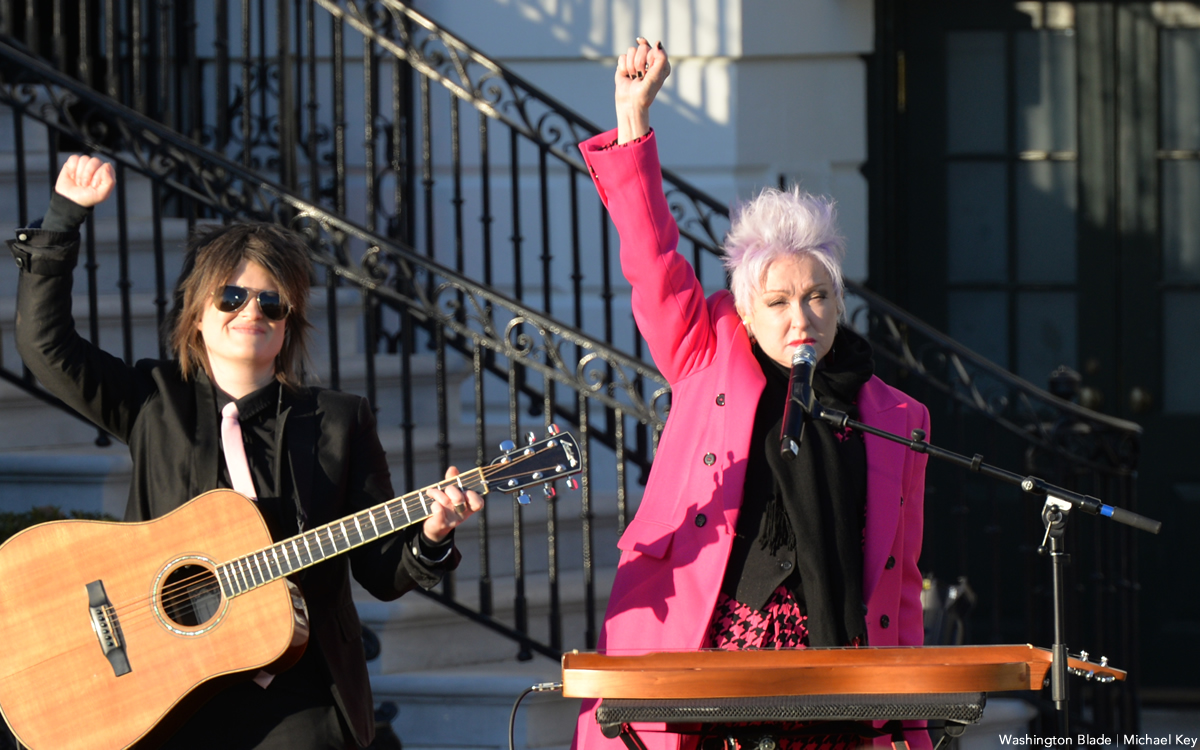
Superstar Cyndi Lauper will bring the final leg of her farewell tour “Girls Just Wanna Have Fun” to Bristow, Va., on Thursday, July 24 at Jiffy Lube Live.
Lauper’s international Farewell Tour – her first major headlining run in a decade – kicked off in North America last October, and included her first time ever headlining (and selling out) Madison Square Garden. Lauper’s performances have earned raves from the New York Times, Rolling Stone, Billboard, and many more, and surprise guests have included Chaka Khan, Sam Smith, and Hayley Williams. The tour just visited the U.K. and Europe, and will head to Australia and Japan in April.
Tickets are available on Live Nation’s website.


















